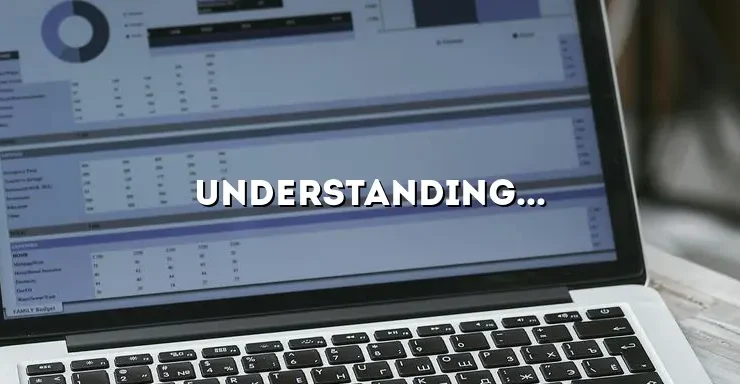
Women have long played a crucial role in the insurance industry, yet their contributions often go unnoticed. From underwriters and agents to executives and entrepreneurs, women have been instrumental in shaping the industry’s landscape and driving innovation. As the world becomes increasingly diverse and inclusive, it is essential to shed light on the achievements and challenges faced by women in insurance. This article explores the experiences, opportunities, and barriers encountered by women in this dynamic field, as well as the initiatives driving change.
Throughout history, women have defied societal norms to pursue careers in insurance and have excelled in various domains. However, their journey has not been without obstacles. In a traditionally male-dominated industry, women have faced gender biases, unequal opportunities for advancement, and a lack of representation in leadership roles. Despite these challenges, women continue to thrive and make significant contributions to the insurance sector.
Breaking Stereotypes: Women Shaping the Insurance Landscape
From the early days of insurance, women have been breaking stereotypes and making their mark on the industry. In the late 19th and early 20th centuries, women like Eliza Gurney and Henrietta Muir Edwards played pivotal roles in establishing insurance companies and advocating for women’s rights in the field. Their efforts were instrumental in creating a more inclusive environment for women in insurance.
Trailblazers in Insurance: Pioneering Women of the Past
Women in insurance have a rich history of breaking barriers and achieving remarkable milestones. Women like Mary Rosse, who became one of the first female insurance agents in the United States in the early 1900s, paved the way for future generations. These trailblazers defied societal expectations and proved that women were just as capable as their male counterparts in the insurance industry.
Challenging Gender Stereotypes: Women in Leadership Roles
While progress has been made, gender stereotypes still persist in the insurance industry. However, women continue to challenge these stereotypes by assuming leadership roles and making significant contributions. Women like Inga Beale, the first female CEO of Lloyd’s of London, have shattered glass ceilings and inspired countless others to strive for leadership positions.
Empowering Women: Initiatives Driving Change
Recognizing the need for change, various initiatives and organizations have emerged to support and empower women in insurance. These initiatives aim to address the existing gender disparities, provide opportunities for professional growth, and promote inclusivity within the industry.
Women’s Networks and Associations: Building Supportive Communities
Women’s networks and associations, such as the Women in Insurance Network (WIN) and the International Association of Insurance Professionals (IAIP), provide a platform for women to connect, share experiences, and access mentorship and career development opportunities. These communities foster a sense of belonging and support, enabling women to navigate the challenges they face in the industry.
Diversity and Inclusion Initiatives: Creating a Level Playing Field
Recognizing the importance of diversity and inclusion, many insurance companies have implemented initiatives to create a more equitable workplace. These initiatives include unconscious bias training, diverse hiring practices, and mentorship programs specifically designed to support women in their career progression. By fostering a culture of inclusivity, these organizations are breaking down barriers and empowering women to reach their full potential.
Overcoming Challenges: Gender Biases and Unequal Opportunities
Despite their competence and dedication, women in insurance continue to face gender biases and unequal opportunities for advancement. These challenges can hinder their career progression and limit their ability to reach leadership positions within the industry.
Gender Biases in Hiring and Promotion
Gender biases can manifest in various ways throughout the hiring and promotion processes. Research has shown that women are often overlooked for leadership roles, even when their qualifications and experience match or exceed those of their male counterparts. Gender biases can also influence salary discrepancies and hinder women’s access to opportunities for professional growth.
Workplace Culture and Stereotypes
The prevailing workplace culture and stereotypes can create additional challenges for women in insurance. Stereotypes that associate insurance with masculinity can lead to women being undervalued or excluded from certain roles. The culture of long working hours and the expectation of constant availability can also disproportionately affect women, especially those with caregiving responsibilities.
Ensuring Equal Representation: The Path to Leadership
Equal representation of women in leadership positions is essential for driving change and fostering a more inclusive insurance industry. Organizations must actively work towards eliminating barriers and creating opportunities for women to assume leadership roles.
Mentorship and Sponsorship Programs
Mentorship and sponsorship programs play a crucial role in nurturing female talent and providing guidance for career advancement. By pairing aspiring women leaders with experienced professionals, these programs help bridge the gap and provide the necessary support, guidance, and networking opportunities to propel women into leadership positions.
Leadership Development and Training
Investing in leadership development and training programs specifically tailored to women in insurance can equip them with the necessary skills and knowledge to excel in leadership roles. These programs focus on building confidence, enhancing communication and negotiation skills, and developing strategic thinking and decision-making abilities.
Navigating Work-Life Balance: Women in Insurance
Work-life balance is a critical aspect for women in insurance, as they often juggle professional responsibilities with family and personal commitments. Finding ways to navigate this delicate balance is crucial for their overall well-being and long-term success.
Flexible Work Arrangements
Flexible work arrangements, such as remote work options, flexible hours, and job-sharing opportunities, can empower women to better manage their personal and professional lives. These arrangements allow women to fulfill their responsibilities both at work and at home, resulting in increased job satisfaction and improved work-life balance.
Supportive Organizational Policies
Organizations can further support women in achieving work-life balance by implementing supportive policies, such as parental leave, child care assistance, and wellness programs. These policies demonstrate a commitment to the well-being of their employees and foster a more inclusive and family-friendly work environment.
Driving Innovation: Women as Catalysts for Change
Women bring unique perspectives and talents to the insurance industry, making them invaluable catalysts for innovation and growth. Their diverse experiences and insights can drive transformative change and shape the future of the industry.
Embracing Technological Advancements
Women in insurance are at the forefront of embracing technological advancements and leveraging them to improve efficiency, enhance customer experience, and drive innovation. Their adaptability and openness to new technologies contribute to the industry’s ongoing digital transformation.
Customer-Centric Approach
Women’s natural empathy and ability to understand and connect with customers make them well-suited to adopt a customer-centric approach. By focusing on meeting the unique needs and preferences of diverse customer segments, women in insurance can drive innovation and create tailored solutions that resonate with clients.
The Road Ahead: Advancing Women’s Empowerment in Insurance
While progress has been made, there is still work to be done to advance women’s empowerment in the insurance industry. It is crucial to build on the existing initiatives and continue driving change to create a more inclusive and equitable future for women in insurance.
Celebrating Success and Sharing Stories
Recognizing and celebrating the achievements of women in insurance is essential for inspiring future generations and motivating women to pursue leadership positions. Sharing success stories and highlighting the contributions of women in the industry can help break down barriers and inspire others to follow in their footsteps.
Advocacy and Policy Changes
Advocacy plays a vital role in driving policy changes that support women’s empowerment in the insurance industry. Collaborating with industry associations, policymakers, and regulatory bodies can lead to the implementation of policies and regulations that promote gender equality, diversity, and inclusion.
In conclusion, women in insurance have been instrumental in shaping the industry’s progress, breaking barriers, and driving innovation. From challenging stereotypes to advocating for equal representation, women continue to make significant contributions despite the challenges they face. Through initiatives, supportive policies, and a commitment to fostering a more inclusive culture, we can empower women in insurance and create a brighter future for all.






